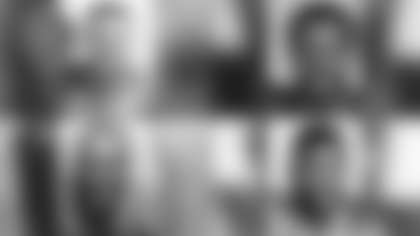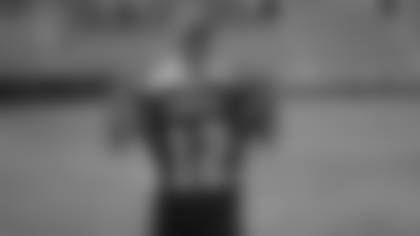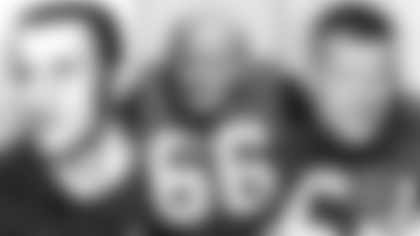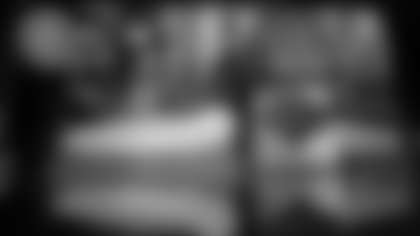At the bottom of the north scoreboard overlooking the hallowed grounds of Lambeau Field are the two retired numbers from the Vince Lombardi era – 15 and 66 – worn by the two players who over time arguably became the favorite sons of those glory years.
But if the impatient Packers fans of yesteryear would have had their way, both Bart Starr and Ray Nitschke might have been buried on the scrapheap of the NFL – the waiver wire – and perhaps forever forgotten except for lone lines on the all-time roster in the team's media guide.
Their legacies today reading more like those of Dennis Claridge and Ed Holler.
As a 17th-round draft choice in 1956, Starr made a favorable impression on then coach Lisle Blackbourn in a pre-training camp practice but spent his rookie season performing mostly mop-up duty behind starter Tobin Rote. In Starr's one start, he was yanked in the second quarter after throwing what was described as "a floater" intercepted in the end zone killing a scoring drive.
Over the next two seasons, Starr shared playing time with former No. 1 draft pick Babe Parilli.
In 1957, Starr started 11 of 12 games, and the Packers won a mere three. What's more, those victories could hardly be counted as his. In the opener – the first game ever played at what is now Lambeau Field – Starr was pulled at the end of the first quarter following an interception, where he underthrew a wide-open Billy Howton, and then watched as Parilli led a 21-17 comeback victory.
A month later, Starr played most of the game as the Packers scored another comeback victory over the Baltimore Colts, 24-21. But he wasn't on the field when the Packers scored all three of their fourth-quarter touchdowns. On the first two, with the ball inside the Colts' 5-yard line, Paul Hornung took over at quarterback and ran for the TDs. On the game-winner, a 75-yard touchdown reception by Howton with 29 seconds left, Blackbourn inserted Parilli because he needed a quarterback with the arm strength to throw a bomb. And Parilli delivered. His pass traveled 50 yards in the air – he was standing at his own 15 – and Howton ran the last 35.
When the Packers beat Pittsburgh for their third victory of the season, Parilli ran for a touchdown and played the fourth quarter when Fred Cone kicked two field goals to seal the victory, while Starr's passing line was 4 of 15 for 39 yards.
In 1958, during the Packers' 1-10-1 season under Scooter McLean, Starr started seven games in which the Packers went 0-6-1. In their only win, a 38-35 victory over Philadelphia, Parilli went the distance.
In essence, if not for Parilli bailing him out, Starr was winless after 19 starts over his first three seasons.
By the mid-point of the 1958 season, following a 56-0 walloping at the hands of the Colts, Starr had thrown eight interceptions in six games and there were reports that members of the Packers executive committee were questioning McLean as to why he was playing ahead of Parilli; fans were "sizzling" in the words of the Green Bay Press-Gazette's Art Daley; and even teammates were openly pointing fingers at the quarterbacks, namely Starr because he had taken the vast majority of snaps.
"We need a quarterback who can take hold out there," one player told Chuck Johnson of The Milwaukee Journal. "Right now, we haven't got one. What's really wrong with this ball club is that we need a real leader on offense. Our quarterbacks just are not on a par with the rest of the league."
Heading into the final game, McLean himself seemed to have given up on Starr, when he announced that he was going to start Joe Francis. What other interpretation could there be when McLean said his game plan would consist of only 16 plays because that's all Francis would be able to handle as a rookie who ran a single-wing offense in college? "He doesn't know all the plays and which formations to run them from," said McLean.
Nevertheless, it was a move well received by fans – or at least some of them. One of the more disconsolate was convinced that he and all his brethren could see what McLean couldn't when he wrote to the Press-Gazette's People's Forum two days before Francis' start. "Most of the fans knew what Francis could do after the Intra squad game," he complained. "Francis could have taken the team a lot further than Starr and Parilli."
When Lombardi arrived in 1959, he saw enough things on film to take a liking to Starr and planned to start him in the final two exhibition games after giving each of the four candidates for the job a start in the first four games.
But Lombardi had a short leash, too. When Starr struggled in the first quarter of that fifth preseason game in Winston-Salem, N.C., Lombardi benched him and turned to Francis. A despondent Starr took a seat fighting back tears.
"I heard this sniffling and crying, and when I looked to see where it was coming from I saw Bart Starr sitting down from me sobbing. 'He took me out,' he said. 'He took me out of the game,'" second-round draft pick Alex Hawkins, who also had started and gotten just as quick a hook, wrote in his autobiography.
Hawkins recounted how Lombardi had talked during a meeting about quarterbacks being his biggest challenge because they had to be an extension of him on the field. "If Vince Lombardi wanted a great challenge, he had one sitting right there beside me, crying," Hawkins added.
Having lost his training camp battle to be the starting quarterback, Starr sat behind Lamar McHan for the first seven games before opportunity beckoned again. When McHan was sidelined with an injury, Starr replaced him – although not before Lombardi gave Francis another look – and essentially won his first game in his 21st start as an NFL quarterback. Then, he won three more to close the season.
Nevertheless, Starr hadn't totally earned Lombardi's confidence. While Starr started the 1960 opener rather than McHan, he also was demoted after one bad game, a 17-14 loss to the Chicago Bears. Hence, it was more than a month before Starr got another shot and finally seized the moment.
A third-round draft pick in 1958, Nitschke got a break and started his first pro game when veteran linebacker and former No. 1 draft pick Tom Bettis suffered a dislocated elbow in the preseason. But when Nitschke blew several assignments in the fourth game, a 37-21 loss to Washington, a now healthy Bettis replaced him. "Nitschke will have to learn to stay at home in his position," McLean explained.
Nitschke never got another chance that year. He was relegated to being a backup at left linebacker and finished the season making a lone start at defensive end.
A year later, under Lombardi, the middle linebacker job still belonged to Bettis. Lombardi moved Nitschke to fullback shortly before the start of the season but that experiment didn't work out, either. Thus, Nitschke hardly played in 1959 as Bettis' backup.
Among fans and others in the know, Nitschke's reputation at that point was one of a bad drunk more than a marauding middle linebacker. Someone who was getting the crap beat out of him in late night brawls more often than dishing out big hits on the field.
At the time, the most widely circulated of those stories was when Bill Taylor, a hockey player for the Green Bay Bobcats, pummeled Nitschke at a bar on Broadway, then a seedy street of endless taverns on the near west side.
The late Tom Waldorf, a beat cop who patrolled Green Bay's downtown streets in the 1960s, told me in 2011 that even Bettis once clocked Nitschke outside the Mayfair Lounge on Adams Street.
"There was a parking lot there," said Waldorf. "What happened was Nitschke wasn't a fighter. On the field he was, but off the field he was a little baby. He got in a lot of trouble. Bettis beat the p--- out of him. It wasn't much of a fight."
Through eight games in 1960, Nitschke was still warming the bench when Lombardi finally gave him a shot as a starter. Nitschke played well and appeared to cement the job with a solid performance in the NFL Championship Game against Philadelphia. But at midseason a year later, Nitschke was called up for Army duty along with halfback Paul Hornung and end Boyd Dowler.
As a result, all three were able to continue to play that season by getting weekend passes from their commanding officers. As offensive players, Hornung and Dowler would have little more than 24 hours to grasp the game plan and maybe a limited practice on Saturday to get their timing down. Yet Lombardi would still start them. Nitschke, on the other hand, lost his grip on his starting status and shared playing time over the rest of the season with Bettis, including in the 1961 championship game victory over the New York Giants. While Nitschke might have been an instinctive player when he had his assignments down pat, he still needed repetitions in practice or he was prone to mistakes.
Thus, it wasn't until 1962, his fifth year in the league, that he truly solidified himself as a starter.
What's the moral of my story?
That none of us have any clue what tomorrow will bring, much less a string of tomorrows. Not in our personal lives and certainly not as far as football and the NFL.
For Packers fans, Feb. 1, 1968, the day Lombardi stepped down as coach, was followed by 24 years of misery, despite his guarantee that "Green Bay Packer football will continue to be excellent." Events on Aug. 3, 2008, spelling the end of Brett Favre's playing days in Green Bay, fueled a night of boos raining down on Aaron Rodgers and soon after a 6-10 finish to the season, only to be followed two years later by a Super Bowl triumph, along with eight straight winning seasons, including five NFC North Division titles.
Historically, again, just two more reminders about the foolishness of trying to predict the future and rushing to judgment.















